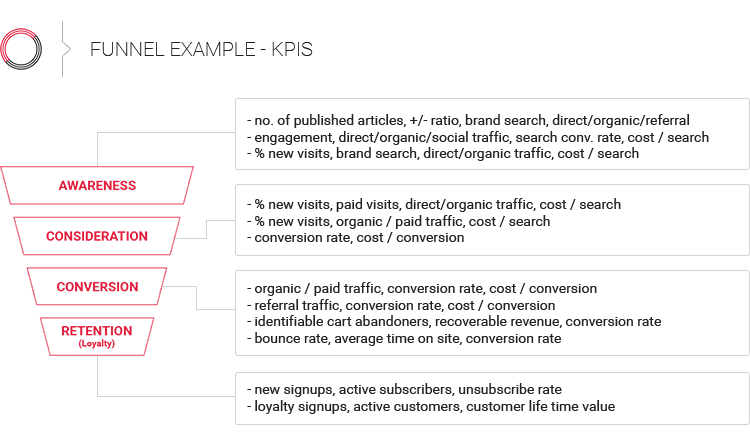Select Sidearea
Populate the sidearea with useful widgets. It’s simple to add images, categories, latest post, social media icon links, tag clouds, and more.


hello@youremail.com
+1234567890
+1234567890
Populate the sidearea with useful widgets. It’s simple to add images, categories, latest post, social media icon links, tag clouds, and more.


Iztok Franko

Do you want to know the quickest way to make your customers mad? Make them think you know nothing about how they feel or what their real problem is.
In my case, I would start this article like this: “In these unprecedented times, because of the new coronavirus…”
If you talk to your audience, your customers, you probably know ‘unprecedented times’ is the last thing they want to hear again, right? And after 9 months, it’s really difficult to convince them that this coronavirus is new.
To make it even worse, I could add another overused cliché: “In these unprecedented times, because of the new coronavirus, travel UX user research is even more important than before.”
This is why user and UX research really matters!
You need to know how your potential customers feel, how to help them with their needs, and how not to piss them off… especially in these unprecedented times (just kidding 😀).
Here is what travel UX research expert and my latest podcast guest, Rui Pereira, Director of Product Design & UX Research at eDreams and former Head of UX Research at Ryanair, had to say about that:
The traveler is now completely different than it was before. There was a lot of research and a lot of knowledge that I had while I was working for Ryanair in terms of user behavior that now is disregarded or even put completely into the bin. Because of the pandemic, customer behavior is completely different. Now you need to go at [doing travel UX research] again, conduct research, try to understand the main pain points right now within the customer journey, and then try to act on this new behavior, on new needs that we have identified.
Listen to the new episode of the Diggintravel Podcast about why travel UX research really matters in the post-COVID recovery period and how to do UX research at scale, or read on for key highlights from our talk with Rui:
And don’t forget to subscribe to the Diggintravel Podcast in your preferred podcast app to stay on top of travel digital and travel UX trends!
You can probably agree that travel is one of the industries where things have changed the most. So, if I go back to the intro to this article, is travel UX research one of the areas about which you can use the “even more important than before” cliché?
Now, to be honest I even wrote myself about why UX research matters more than ever, just a while ago. However, aren’t all things ‘even more important’ now?
Here is Rui’s view on the importance of travel UX research:
UX research was always important. Obviously now, because there was a big shift in terms of behavior, a lot of the things we knew about the customer don’t make sense anymore. Let me give you an example: before, customers were more prone to price, or inventory… Now it’s not only price or only inventory. Now you need to take a step back and add to the pile COVID, and how you’re going to manage this COVID situation. And this is where research comes in. How are you going to mitigate those problems? How can we help the customers throughout the customer journey, from the first trigger (I need to book a trip) until he gets back home?
Going back to the question, research was always important! Maybe now more than ever, but research was always important.
I can agree with Rui that you should be doing travel UX research and all other user research activities even if there was no pandemic. However, there is one thing that the pandemic has changed for all airline and travel companies.
What is that?
The pandemic brought new customer behavior and a lot of change, and everybody is talking about how you need to innovate quickly to adapt to these changes. And I agree – you need to react and adapt to the new reality and build solutions to address new pain points in the travel customer journey Rui was talking about.
However, you should do it in a smart way, and research is the best way to make sure you are answering the RIGHT questions, addressing the RIGHT problem.
Research is the safety net for any organization. If you conduct research, the likelihood of you having a better output, and therefore a better outcome, is going to be much higher.
Without research we’re just talking about hypothesis on hypothesis and we shouldn’t act on hypothesis only. Research is here to help to narrow down and validate (or not) your hypothesis.
I think the safety net reference Rui used is really brilliant! I was using a similar concept of de-risking ideas before, but a safety net sounds even better.
The concept of de-risking ideas or using travel UX research as your safety net is, I think, a very important one. Why?
Because now, when everybody in our industry is resource-strapped, you really cannot afford the uncalculated risk.
This doesn’t mean you don’t need to experiment and build new solutions. On the contrary, now we need to do our cycles of UX and product changes even faster. But we need to make sure that the changes we make have the highest possible probability of success.
This is why travel UX research and the concept of de-risking ideas are so critical.
Focusing on UX research and user-centric design was always the approach Rui tried to implement, both with Ryanair and now at eDreams:
On my teams, we always used the user-centered design methodology, because if you di it, then you can’t get it wrong! If you put the user in the middle of the design process, for sure at the end the product is going to be much better versus if you do it based on assumptions and just ‘Let’s put it live and see if it works.’ This way, if it doesn’t work, you save time and money for the company.
You have to go out of your office. You need to speak to your customers. Those are the real people that are actually booking and using your website. Without [understanding] them, it’s all just based on assumptions.
If you want to know how to do travel UX research and how to do it now, please listen to the full interview with Rui!
Here are some other things we talked about:
Apart from the above topics, there was one other thing I wanted to talk to Rui about. He’s worked for two of the biggest European travel companies in the world (Ryanair and eDreams), so I wanted to know how they do travel UX at scale in a large organization.
As you grow bigger (and if you want to empower a broader digital team to leverage user and UX research to build a user-centric digital experience), centralized user research might slow you down.
You can read this article if you want to learn how they did unmoderated user testing at Ryanair. One could say that online travel companies like eDreams are even more digital-focused, as they are digital natives and digital products are their only products.
At eDreams, their product design team is one of the biggest in Spain. It consists of 4 researchers and around 30 product designers, so I was really curious about how they do travel UX research at scale. They even have their own, in-house usability lab.
I was especially curious about how they are “democratizing” UX and user research in such a big UX team. Now, democratizing and allowing everybody to run their own research and do their own unmoderated (or moderated) user testing sessions sounds great – but Rui admits they might have done it too fast initially at Ryanair. This resulted in people running tests to confirm that their solutions worked instead of really analyzing how they worked and learning about user behavior. Confirmation bias is one of the biggest challenges of both experimentation and user research.
So, what Rui and the team learned is they need a process to teach and train people on how to conduct travel UX research:
It’s a little bit like letting your 18-year-old son out of the house. First, you teach them how to use it [user research], then we let them do it with our supervision for the first couple of tests. So, it’s learn and go, but it’s really important to have a really structured way of doing it.
If you want to learn more about this process and peek behind the scenes at how eDreams do UX research at scale – listen to the full podcast talk with Rui.
If you liked this interview and want more insights from airline and travel digital pros:
I am passionate about digital marketing and ecommerce, with more than 10 years of experience as a CMO and CIO in travel and multinational companies. I work as a strategic digital marketing and ecommerce consultant for global online travel brands. Constant learning is my main motivation, and this is why I launched Diggintravel.com, a content platform for travel digital marketers to obtain and share knowledge. If you want to learn or work with me check our Academy (learning with me) and Services (working with me) pages in the main menu of our website.
Download PDF with insights from 55 airline surveyed airlines.
Thanks! You will receive email with the PDF link shortly. If you are a Gmail user please check Promotions tab if email is not delivered to your Primary.
Seems like something went wrong. Please, try again or contact us.


No Comments